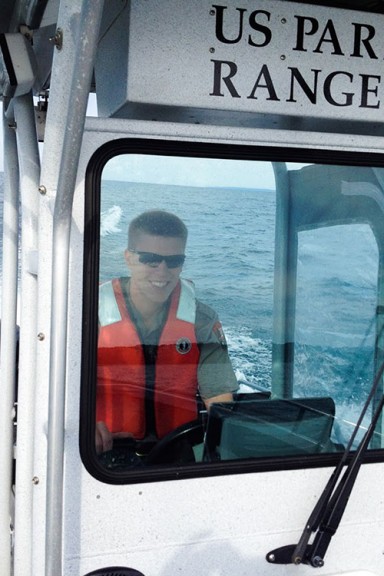
One of Temple’s newest educational programs aims to place students on islands, in forests and even on top of Mount Rushmore, all while wearing an iconic flat-brimmed cap.
Since 2009, the ProRanger program at Temple has been training cohorts of students to enter the workforce in any of the 401 national parks as certified park rangers.
The program’s inception was inspired by a lack of new rangers within the National Park Service. Since it had a mandatory retirement age, the NPS could accurately predict what its turnover rate would be for any given year.
Alongside this issue, some urban parks were being used as a stepping stone to larger permanent parks instead of a permanent placement. To combat these problems, the NPS wanted to create a program within a criminal justice program and in an urban environment.
In partnership with NPS, Temple created a program requiring students to complete a minimum of two summer internships, 15 course-specific credits and a six-credit, 13-week certification program at the police academy at Ambler Campus.
The internships take place at a park over the summer. Graduates from the program are usually sent to work along the East Coast, but some ProRangers have been placed near Michigan or even Utah.
Once they’re onsite, ProRangers partner with active rangers and work closely with them on all of their day-to-day duties.
Classes include cultural, natural, administrative and interpretational aspects of working at a park. Ideally, the classes cater to the various majors ProRangers have, program instructors said.
“Although we get a lot of criminal justice majors for obvious reasons, we’ve had a painter, a couple in business, [education], political science – so they really run the gamut and we encourage that,” Vicki Lewis McGarvey, the vice provost for University College and adviser to the program, said. “We want that diversity of thought and perspective.”
Having a broad background among the participating students is especially important when it comes to the duties of a ProRanger, instructors said.
At Prince William Forest Park in Triangle, Va., senior political science major Jess Cooper said she was able to utilize her diverse skills in an unexpected way on her first day. Having a minor in Chinese, Cooper was able to show off the park to a Chinese delegation that arrived.
“It’s a program for people who like to travel and see new places,” Cooper said. “You have to adapt to change while staying dedicated to the public service.”
While this is the general rule of thumb for a ProRanger, some parks offer a new opportunity. There are parks that have many active park rangers, leaving some with full law enforcement duties.
Other smaller, more isolated parks only have one active park ranger at a time.
Senior criminal justice major Jay Copper said the program is “a dream come true.” He joined the program during his freshman year and expects to earn his certificate by the end of this summer. Finding the union between law enforcement, firefighting and the outdoors as a ProRanger, Copper said he was convinced to join the program.
“Some parks are their own town – you are the fire, you are the EMS, you are everybody,” Copper said. “You could be on a trail for two days all by yourself on a search and rescue.”
This commitment might be hard sell to some freshmen, but Copper said the dedication he put in has paid off. Working at Fort McHenry in Baltimore one summer, he was able to stand on a dirt rampart as the Blue Angels flew over a replica “Star-Spangled Banner” flag while the national anthem blared out to a crowd of more than 20,000.

It’s moments like these that make the ProRanger program so unique, he said.
Jordan Keiffer, a senior criminal justice major, said he has made some special memories. While working at Sleeping Bear Dunes, an island on Lake Michigan, Keiffer recalled meeting a young boy who reminded him of himself.
At an early age, Keiffer collected badges from park rangers all over the nation. As the boy’s visit to the island was ending, Keiffer was able to return the favor to another aspiring park ranger.
“It’s a special moment when a kid comes to the park,” Keiffer said. “When I was little, I did the junior ranger program, so when he got on the ferry I got to give him a patch. So I passed that on to him and his face lit up.”
The newest crop of ProRangers will be recruited by April and will be ready to begin training by summer. While law enforcement is important, Keiffer said he believes in a much simpler ideology.
“You need to enjoy talking to people,” Keiffer said. “We are there to answer questions, inform the public and interpret why the parks are there. It takes a special person.”
Patrick McCarthy can be reached at patrick.mccarthy@temple.edu.


Way to go ProRangers!!!